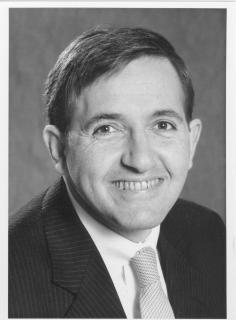It was an amateur composer who inspired Hazzan Ramon Tasat, a synagogue cantor (Temple Shalom of Chevy Chase, Md.) and solo singer, to help form Shalshelet: The Foundation for New Jewish Liturgical Music.
As Tasat, a native of Argentina, explained in a telephone interview, about 10 years ago he became acquainted with Norma Brooks, a psychotherapist and amateur composer of tunes for Jewish liturgy.
“She was hesitant about sending her music out, feeling that perhaps her melodies had no value,” said Tasat. “When I heard them, I thought they were beautiful and that it would be a mitzvah to bring them to the world.”
After the two of them created a book and a recording of her music, “we began talking about how many people are composing that we don’t know about and wouldn’t it be lovely to find a forum for them.”
So Tasat, Brooks and Cantor Natasha Hirschhorn (“with whom I have worked for 20 years,” said Tasat) organized Shalshelet, with Tasat as president and Brooks and Hirschhorn as vice presidents. The word is Hebrew for chain and for a cantillation symbol in Jewish chant.
Shalshelet organized its first International Festival of New Jewish Liturgical Music in 2004; and its leaders felt some trepidation. “We were very nervous and thought no one would care,” said Tasat.
More than 150 compositions were submitted from all over the world to that first festival. “We realized there was a real need for this,” Tasat said.
People who submit works for consideration “can be anybody,” said Tasat — professional musicians or amateurs, and of any age “from 90 to 10,” he said.
The only requirements are that the work must not have been published previously by a major publishing firm; and the composition must have “a text related to prayer.”’
However, that does not mean the text has to come from Jewish sacred literature; some composers have written their own texts, Tasat said.
Submissions come to Shalshelet’s part-time executive director Sarah Hyams, who removes the composers’ names, gives each work a number, and sends them to Tasat, Brooks or Hirschhorn. They evaluate the works, then meet to compare impressions and to choose works for the festival.
Tasat emphasized that Shalshelet does not give prizes. “This is not a competition,” he said. “We choose compositions that we feel can make a contribution to society-at-large; we don’t say the others are worse.”
Shalshelet puts together a book and recording of the works used in the festivals, but it makes sure that the composers retain the copyrights for their work, Tasat said.
Tasat has visited and worked in Milwaukee before, and so became acquainted with Kathleen Jendusa, executive director of the Wisconsin Society for Jewish Learning.
“We developed a very good relationship,” said Tasat. Shalshelet and the WSJL “think outside the box” and “do not hold ourselves to one side of Judaism or another. We think everybody has something important to say.”
Jendusa attended the 2006 festival, and suggested bringing the festival to Milwaukee for its first trip outside the D.C. area. Now, said Tasat, there is a possibility that the 2010 festival will be in the New York City area.
For more information about Shalshelet, including guidelines for submitting works to future festivals, visit the organization’s Web site, www.shalshelet.org.



